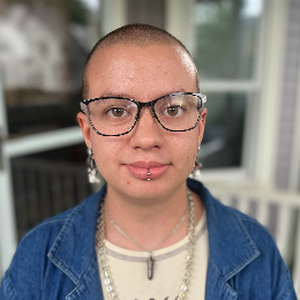Education
I studied education because I aspire to be an educator. The topics covered in this area of study that I enjoyed the most are cultural diversity, academic language instruction, and the field experience I got through volunteering. I enjoyed these topics the most because I was able to add skills to my teacher toolkit and learn about different accommodations I can use to be as accessible as possible.
In this field of study, I learned how to implement different learning strategies, develop lesson plans based on benchmarks, and analyze spoken and written language. For example, in the course L2 Academic Language Instruction (TSL4943), we reviewed and analyzed an audio recording of an English language learner (ELL) speaking based on morphology, phonology, and semantics. In the course Elementary Mathematics for Teaching I (MAE3310), we studied different strategies we can teach our learners of various learning styles to understand math and solve problems. In the course ESOL Cultural Diversity (TSL4520), we learned how to source and learn information on different cultures and how to apply that knowledge into making accommodations and alterations to the classroom climate to integrate these other cultures accurately and make students feel more welcomed. Taken together, I was able to develop cultural awareness and identify when to implement accommodations or assistive technology (ATs). I can utilize these skills and knowledge to create lesson plans centered on the local population/culture, with parent-involvement strategies, and with language-learning skills through content and/or literacy needs.
I studied letters and modern languages because I admire how language connects humans together and wanted to be able to connect with people despite language barriers. The topics covered in this area of study that I enjoyed the most are linguistics, grammar, and issues in second language acquisition, because I find the evolution and use of languages to be fascinating and want to study more closely how it works.
In this field of study, I learned different language learning skills for ELLs, create tests and lesson plans for ESL classrooms, and the meaning of language. For example, in the course Issues in Second Language Acquisition (TSL4240), we learned different ESOL strategies and activities through the lens of English phonology, morphology syntax, and semantics that can help develop their language learning skills. In the course Language and Meaning (LIN4801), we studied the evolution of words and ethical uses of language. In the course ESL Classroom Experiences (TSL4363), I volunteered at UCF Global in an ESL class with a professor, where I got hands-on experience working with ELLs. Taken together, I was able to develop a comprehensive knowledge on linguistics and grammar in the English language, and how to recognize the same patterns in other languages. I can utilize these skills and knowledge to identify errors in my students’ work based on their efficient understanding of English grammar and linguistics
